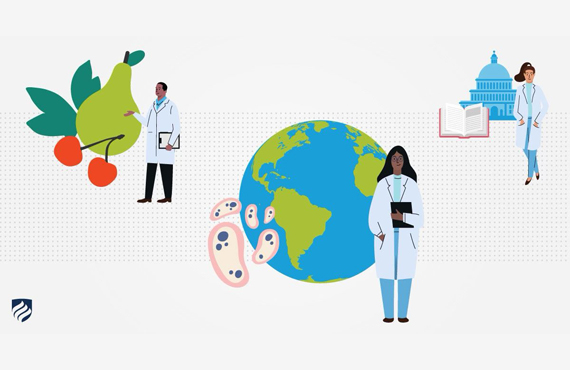Balancing Public Health With Individual Rights

In a pluralistic society like ours, different people have different ideas about what constitutes common good. Rights of historically suppressed and marginalized groups such as homosexuals, transgenders or minoritieshave only recently been given their desired impetus. Revolutions transcending centuries have allowed us to place a high value on individual freedoms, fundamental rights and personal liberties which brings us to the all-pervasive question - to what extent can a State legitimately restrict the liberties of its citizens for common good? The United States Supreme Court, ever since its landmark decision of Jacobson v. Massachusetts, which upheld a State’s police powers to mandate compulsory vaccination, has been quite categoric in establishing that an individual must give up some personal freedom in exchange for the benefits of being in a civilized society. However, it has recently given two opinions which are difficult to reconcile with each other and its long-established stance.
The Biden administration has been allowed to enforce a rule whereby entities receiving Medicare or Medicaid funding have been insisted to get their employees vaccinated pursuant to the decision rendered in Missouri v. Biden. However, a rule requiring businesses employing a hundred or more workers to insist their employees to either be vaccinated or wear masks or undergo regular coronavirus testing has been prevented in National Federation of Independent Business v. OSHA.The irreconcilable decisions have placed under scrutiny the so-far unchallenged powers that had been exercised by public health authorities. To counter vaccine skepticism and curb the economic and social upheaval caused by the unrelenting COVID waves, an international assessment would demonstrate that various countries have taken drastic measures such as exclusion of unvaccinated people from public activities. Such measures have proven effective and increased vaccine uptake nothwithstanding that it potentially does have the effect of reducing public confidence and trust, trespassing on individual rights.
India has a largely non-existent public health framework. So far, it has not taken a decisive stance on a Central COVID-19 vaccine mandate, though the Central government did state before the Supreme Court that the measures adopted by them do not envisage any forcible vaccination - a subject which has generated significant legal controversies in the country since its inception. Robust jurisprudence has been developed on an individual’s right to privacy by the Supreme Court however, questions concerning the Government’s powers to tackle a public health crisis have largely remained unanswered and controversial. The Court has so far, rightly given due deference to the Centre in making policy decisions and recently dismissed a plea which sought a direction to stop mass vaccination till all stages of clinical trials of Covishield and Covaxin were completed.
The pandemic has given an opportunity to the Indian government to articulate a new paradigm of public health. The experience of dealing with the virus can allow various stakeholders to collaborate and establish a ground-breaking public health framework which must balance individual liberties with the State’s interest in protecting the larger population. Historically, public health officials focused on the medical aspects of public health and paid little attention to individual liberties especially since public health is essentially a scientific pursuit as it requires understanding of the etiology and response to disease. But justifiably it also requires law to define the jurisdiction of public health officials and their authority which assists in establishing the language of rights, duties and justice. Each public health strategy entails some risk to individual liberty for eg. reporting and contact tracing violate norms of confidentiality and mandatory testing may violate the concept of individual autonomy.
To attain tangible health policy gains, the language of human rights must be employed in all policy decisions to afford greater protection to vulnerable groups. Decisions made on technical considerations must assess issues of equity, efficiency and effectiveness which can only be achieved with the active collaboration of stakeholders across all sectors.Limits may have to be placed on individual rights to advance public good, especially during a pandemic, when the ultimate utilitarian objective of public good is achieving public health. India must introduce a dedicated public health legislation which can aid in creating conditions to promote and protect health and safety while contouring the limitations on the power of the State to constrain individual rights.
